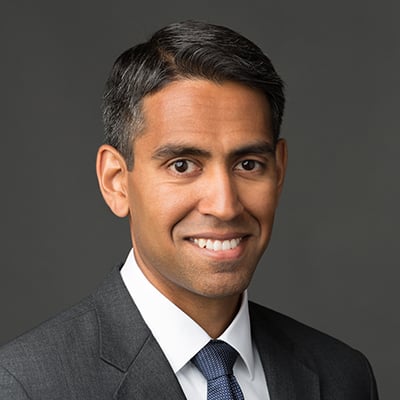Key Takeaways From Ex-Alstom Exec's FCPA Conviction
On Nov. 8, in a closely followed trial, Lawrence Hoskins, a British national and former executive of Alstom SA, a French company, was convicted of violating the Foreign Corrupt Practices Act.[1]
The case, U.S. v. Hoskins, represents a significant development in the U.S. Department of Justice’s efforts to enforce the FCPA because it is the first such case in which a foreign national was tried to verdict where that foreign national did not work for a U.S. company and had never visited the United States.
As a result, the case presents valuable lessons for foreign companies and individuals about when they can be subject to liability under the FCPA. The case also provides guidance about when individuals can effectively withdraw from a bribery scheme and limit the scope of potential liability.
Background
In 2012, a grand jury charged Hoskins with violating the FCPA for his alleged involvement in a multimillion dollar bribery and money-laundering scheme. According to the indictment, during his time as a senior vice president at Alstom, Hoskins engaged in a conspiracy to pay bribes to officials in Indonesia in order to win a $118 million contract under which Alstom Power Inc., located in Connecticut, and its partner, Marubeni Corporation, would provide power-related services to citizens of Indonesia.
Hoskins and others allegedly hired two consultants, ostensibly to provide consulting services in connection with the power-services project in Indonesia, but according to the indictment, the consultants’ role was to bribe Indonesian government officials.
Following years of litigation, Hoskins’ trial occurred in late October and early November. On Nov. 8, a jury convicted Hoskins on 11 counts — six counts of violating the FCPA, three counts of money laundering, and two counts of conspiracy.
Agency
One of the key issues raised by Hoskins, both during the trial and in pretrial motions, was whether the DOJ could prosecute Hoskins. Hoskins sought to dismiss the FCPA counts by claiming that as a foreign national who had never visited the United States, he was not subject to liability under the FCPA.
After the U.S. District Court for the District of Connecticut ruled on Hoskins’ motion to dismiss, the government appealed to the U.S. Court of Appeals for the Second Circuit, which identified the following sets of persons to whom FCPA liability applies:
(1) American citizens, nationals, and residents ... ; (2) most American companies ... ; (3) agents, employees, officers, directors, and shareholders of most American companies, when they act on the company’s behalf ... ; (4) foreign persons (including foreign nationals and most foreign companies) not within any of the aforementioned categories who violate the FCPA while present in the United States.
The Second Circuit noted that the FCPA did not address whether a foreign national outside the U.S., who is not acting on behalf of an American company or person, could be liable under the FCPA. Ultimately, the Second Circuit concluded that the government could seek to hold foreign nationals liable for violations of the FCPA if the foreign national was an agent of a U.S. domestic concern.
Consequently, a determinative issue in Hoskins’ trial was whether he was an agent of Alstom Power, a subsidiary of Hoskins’ employer. The government set forth an expansive view of agency liability under the FCPA, one in which a foreign national can be liable as an agent of a U.S. company even though the company’s control over the agent does not exist at every moment, the company’s control over the agent might be ineffective at times and the company’s control over the agent is not documented in a formal agreement.
In this case, the government alleged that Hoskins was an agent of Alstom Power because he was responsible for “oversight of the hiring of consultants in connection with Alstom’s and Alstom’s subsidiaries’ efforts to obtain contracts with new customers and to retain contracts with existing customers in Asia, including the Tarahan Project in Indonesia.”
The government acknowledged that a senior employee of Alstom Power was the one in charge of the project, that he “controlled the strategy and approach” for winning the project and that he was the one who asked Hoskins to work on the project. Thus, Hoskins did not need to be in charge of the project to be an agent; rather, a supporting role was enough.
Hoskins countered that the government was wrong in arguing that merely supporting a U.S. company indicates an agency relationship. Instead, the defense focused on the lack of control that Alstom Power had over Hoskins. The defense explained that the senior employee at Alstom Power who was in charge of the power-services project was not Hoskins’ boss and that “no one at the subsidiary could tell [Hoskins] what to do.”
Defense counsel also claimed that Hoskins’ role was simply to facilitate Alstom headquarters' provision of assistance to Alstom Power in order to win the Indonesian contract. To that end, Alstom Power only had authority to pick the agent and negotiate terms, whereas the decision to hire the agent was subject to Hoskins’ review.
Key Takeaways
Agency: Control vs. Support
The FCPA does not define the term agent, so courts have resorted to traditional agency law principles to evaluate whether an individual qualifies as an agent under the FCPA. Following briefing by the parties, the court instructed the jury that an agent must meet three requirements: (1) there must be a “manifestation by the principal that the agent will act for it”; (2) the agent must accept an undertaking, meaning that the agent will perform acts or services for the principal; and (3) there must be an understanding that the principal is in control of the undertaking.
The court further instructed that “[o]ne may be an agent for some business purposes and not others” and that the government must prove that Hoskins was an agent of Alstom Power in connection with the Indonesian project.
In accordance with these jury instructions, both parties in Hoskins agreed that a principal must have some degree of control over an agent, but the parties disagreed on the extent of that control. Ultimately, the jury sided with the government’s theory of agency, finding that Hoskins was an agent of Alstom Power.
The jury found agency where the agent was a foreign national, was not employed by the same company as the principal, did not have a formal agreement with the principal, was not controlled by the principal at all times or such control might have been ineffective, and the was not in charge of the bribery strategy. Thus this theory of agency sets a low bar for future FCPA enforcement actions.
Going forward, the government might seek to use an agency theory of liability to pursue alleged misconduct against defendants with potentially attenuated connections to the U.S. sets a low bar for future FCPA enforcement actions.
In particular, employees of foreign public companies with U.S. subsidiaries might face increased risk of enforcement by the U.S. government. This underscores the need for companies to train all employees on anti-corruption enforcement risk, not just those employees in the U.S. or under the direction of a U.S. entity.
Withdrawal From a Bribery Scheme
Another notable aspect of the case is that Hoskins was charged with six counts of bribery related to wire transfers made by Alstom Power to the two consultants in 2005 to 2009, and four counts of money laundering related to wire transfers made by the consultants to Indonesian bank accounts from 2005 to 2007.
Hoskins sought to avoid conviction on these charges in part by claiming that he withdrew from the alleged conspiracy in 2004 when he resigned from Alstom. In furtherance of this argument, Hoskins sought to block the government’s introduction of evidence relating to pension payments made by Alstom to Hoskins after 2004.
In response, the government claimed that receipt of a pension negates Hoskins’ claim that he severed ties with the company. Further, the government claimed that the pension payments were in part based on the bribery scheme. During the trial the government argued that to truly withdraw from the scheme, Hoskins would have had to “take steps to undo what he did.”
Ultimately, the jury agreed that Hoskins had not withdrawn from the scheme, as he was convicted on several counts involving payments that occurred after he left Alstom. Thus, directors, officers, executives and other individuals who plan to leave a company should consider that the receipt of post-departure compensation — e.g., pension payments, earn-outs, consulting payments — could subject such individual to liability resulting from illicit conduct occurring after departure from a company.
Sunil Shenoi and Kim B. Nemirow are partners at Kirkland & Ellis LLP.
The opinions expressed are those of the author(s) and do not necessarily reflect the views of the firm, its clients, or Portfolio Media Inc., or any of its or their respective affiliates. This article is for general information purposes and is not intended to be and should not be taken as legal advice.
[1] U.S. v. Hoskins, case number 3:12-cr-00238, in the U.S. District Court for the District of Connecticut.


